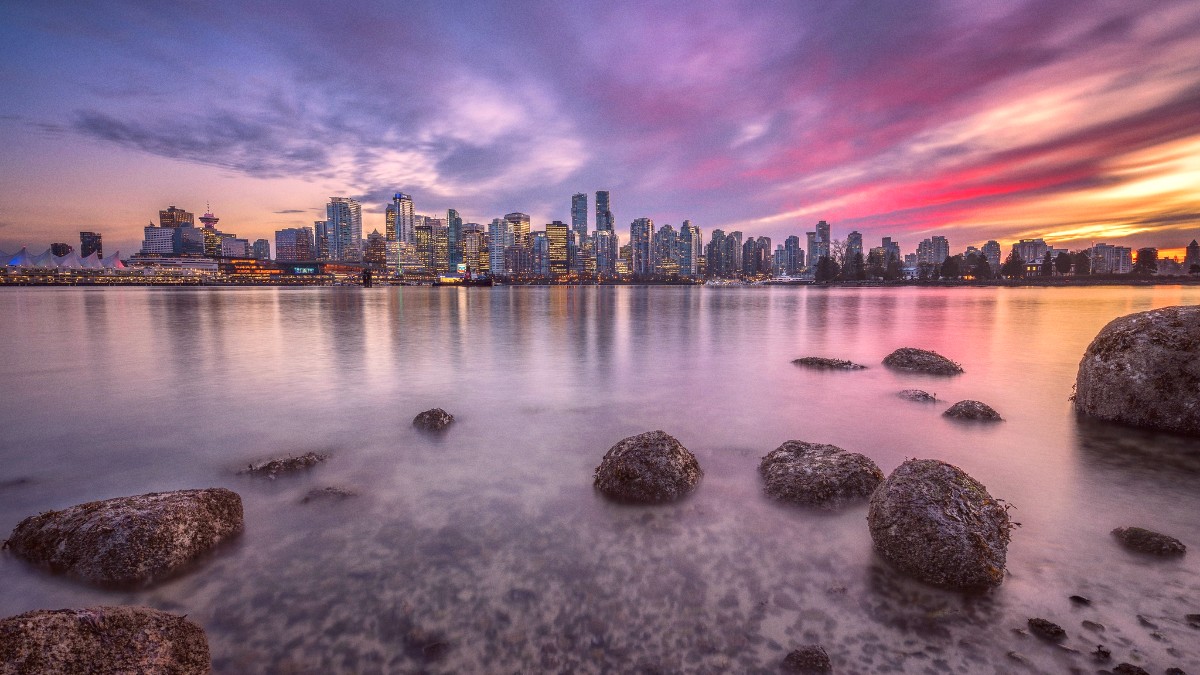
British Columbia, Canada
Vancouver's culinary scene reflects its multicultural population and access to fresh West Coast ingredients. Strong Asian influences are famous, given the large immigrant communities.
A focus on fresh seafood, local produce, and farm-to-table practices defines much of its dining culture. This commitment to fresh, local ingredients shapes the city's food identity.
Casual dining is common throughout Vancouver, making for relaxed meal experiences.
For popular restaurants, especially on weekends, reservations are recommended.
Tipping (15-20%) is standard for service staff, including in restaurants and cafes.
Enjoy freshly grilled, pan-seared, or smoked salmon. It is widely available at seafood restaurants across the city.
Find at: Seafood restaurants city-wide.
Vancouver has a reputation for high-quality, authentic Japanese food. Numerous sushi restaurants operate throughout the city.
Find at: Sushi restaurants city-wide.
Experience authentic Cantonese dim sum, especially in Richmond or Vancouver's Chinatown.
Find at: Richmond and Chinatown restaurants.
This unbaked dessert bar features a crumb base, a custard filling, and a chocolate ganache topping. Find it in bakeries and cafes.
Japanese-inspired hot dogs with unique toppings are popular. Vancouver's food truck scene offers diverse options, including ethnic tacos and gourmet grilled cheese.
For an elevated culinary experience, consider establishments that require reservations.
Numerous choices across all neighborhoods cater to diverse tastes and budgets.
Affordable meals are available from various sources across the city.
A major food destination offering fresh produce, baked goods, seafood, and prepared foods. It is a spot for lunch or gathering picnic supplies.
Find at: Granville Island
Located in North Vancouver, accessible by SeaBus, this market provides various food vendors and local products.
Find at: North Vancouver
Chinese, Japanese, Korean, Vietnamese.
Italian, Greek, Middle Eastern.
Mexican, American, Latin.
Indian, African, and more.
Halal dining choices are available, specifically in areas with larger Muslim communities.
Look for certified halal establishments.
Kosher choices are more limited but can be found with some research.
Specialty groceries may carry kosher products.
Apps like HappyCow are excellent for finding vegan/vegetarian dining options.
Clearly communicating your dietary needs to restaurant staff is the most effective way to ensure a safe dining experience.
Opportunities exist to visit farms in the Fraser Valley, especially during seasonal harvest periods.
Some tours connect visitors directly with local food producers, sharing their craft and processes.
Experience sustainable agriculture and ethical food production firsthand.
Enjoy fresh, local spot prawns in spring. Many restaurants feature them on seasonal menus.
Typically runs from May to June.
Local fruits and vegetables are abundant throughout the warmer months, featured in farm-to-table restaurants.
Highlights include berries in summer, apples in fall.
Each Vancouver neighborhood offers distinct culinary flavors; venture beyond downtown for diverse dining.
While fine dining is available, street food and casual eateries provide excellent value and taste.
Local residents offer great recommendations for authentic and lesser-known dining spots.
Vancouver's diverse food culture truly offers something for every palate. From fresh West Coast seafood to authentic international flavors, dining is a major part of the experience.